|
Our continuing updates to our series of marketing blogs takes a look at book pricing. 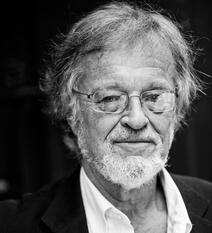 Author Bernard Cornwell Author Bernard Cornwell Last year Bernard Cornwell brought out a new “Sharpe” novel and to order it for Kindle will cost you £12.99 (July 2022 price). The price last year to pre-order it was higher - £14.99. So, as a self-published, Indie author, what price should you set for your next masterpiece? Let’s look at the economics of pricing a book. Publishers, even quite small ones, have costs they must cover: rent, utilities, editing, proofreading, marketing, distribution, “back office” staff etc. All of these costs have to be recovered and, to help the company’s balance sheet, they like to recover those costs within the financial year in which the book is published. To keep the shareholders happy, the company also needs to make a profit. "the author needs to make a living" Then the author needs to make a living, so some income for the author has to be factored into the price, which also has to take into account the percentage that will be paid to the author’s agent, anywhere between 10% and 20% of the author’s royalties (the author pays the agent, not the publisher). Finally, a well-known author like Cornwell has a loyal fanbase who are prepared to pay that price to read about Sharpe’s latest adventure. You have seen a similar effect with fans queuing to be the first to be the owners of the new iPhone or PlayStation. Put those things together and you get the price that is being asked for the latest Bernard Cornwell book. Once the publisher has recovered their initial costs, usually after a year, they start to reduce the price of the book while maintaining the level of royalties they pay to the author. You can pick up most of Cornwell’s earlier work as an ebook for around £6.99. The price of the hardback is usually reduced when the paperback is released, perhaps 6 months after launch. Even paperback prices are reduced over time. 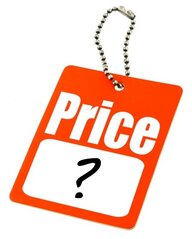 So, how much do you think you should charge for your books? Firstly, you don’t have most of those overheads. You have expended time to write the book and you may have paid for some services, such as editing or cover design, you may also have to pay for some marketing activity, but those costs are miniscule when compared to those of a major publisher. Interestingly you can make the same royalties, per copy, for your book charging quite a modest price as Bernard Cornwell will at £12.99 a pop. The difference in income between you is that he will sell hundreds of thousands of copies, but you will probably be doing well to sell a few hundred copies. At least, until you are better known. I don’t know why you got into writing, but if it was to become a millionaire, you are barking up the wrong tree. According to this research, the average annual royalties for an author in the UK in 2018 was a fraction over £16,000. The top 10% of authors earn 70% of all royalties. These are the big, well-known names. A statistician will tell you that it is the top 10% that is keeping the average as high as it is. I’ll just to do the maths for you: if you price your book to pay you £3 per copy in royalties, you have to sell more than 5,600 to make the national minimum wage – without taking your other costs into account. The mode (that’s statistics jargon meaning what the largest number of authors earn) is much lower than the average. It’s less than £11k, or 3,700 sales. "If you want to make money don't become an author, become a publisher." So, even if you can climb to the dizzy heights of earning the average income for an author, you will struggle to live on it. By comparison, the 2022 UK national average full-time salary is a fraction over £31k. It is interesting to note that many of the authors who are signed to mainstream publishers are probably earning less than their editors. They are certainly earning less than the middle managers in the publishing company. If you want to make money out of books, don’t become an author, become a publisher!  The big money for authors isn’t in selling books; it is in selling the TV and film rights to their books. Not only do they go for a large lump sum (and probably a “percentage of the gross”), they also catapult book sales into the stratosphere. It should be remembered that the first print run for “Harry Potter and the Philosopher’s Stone” (Sorcerer’s Stone in the USA) was only 500 copies, 300 of which went to libraries. It took two years to sell 300,000 copies in the UK. You need to sell around 100,000 copies to make it to the Sunday Times best-sellers list. 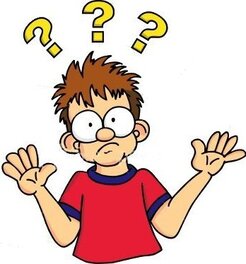 But that hasn’t answered the question: for what price should you sell your book? The answer is, it’s up to you. Some authors believe in setting a low price, hoping to sell more copies. Others set a higher price because they place a higher value on the content. I don’t believe in setting too low a price. I think the readers look at the price and say “If it’s that cheap it can’t be very good” and pass it by. Besides, if you want to drop the price to boost sales, perhaps ahead of the release of a sequel, then you have nowhere to go. "When you sell on Amazon, they set a minimum price" When you sell on Amazon, they set a minimum price (some other platforms also do that). The minimum price is what Amazon thinks they deserve for allowing you to use their platform, which includes delivery via their internet channels. Above that you can sell at whatever price you wish. We set a price of between £2.99 and £5.99 depending on the length of the book. That gives a total royalty between £1 and £3 (approx) per copy. But that is shared 50:50 with the author. If you don’t have a publisher, you get the whole lot. 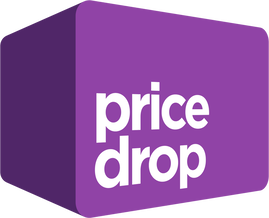 As suggested, there are times when we reduce the price. Amazon will allow us to do that once per title every three months, for up to 5 days per quarter. We will take advantage of that if we want to stimulate interest in a series ahead of the next book being released. Amazon also allows a book to be given away for free using the same parameters and we have also done that. What do the experts say? Well, we came across this article which seems to cover the main points. 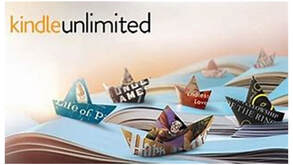 Now to Kindle Unlimited (KU), Kindle Select and Kindle Lending Library. These are three names for pretty much the same thing. Readers pay a subscription to these services (they also get it free with their Prime subscription) and the income for that (after Amazon has deducted its fees) is pooled. Every time a reader downloads and reads a book, the author gets a share of the pool. This is currently about 0.5p per page read, what KDP calls the Kindle Edition Normalised Pages (KENP). This bears no relation to the actual number of pages in a paperback. So, if your book is 400 KENP long and the reader reads it all the way through, you will earn about £2. Depending on the sale price, that may be less than if they bought the book. 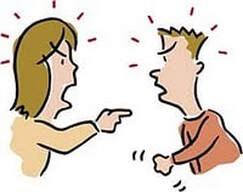 Because of this disparity, there is a difference of opinion about whether to allow your book to be listed on these services (you do have a choice). Books on KU can’t be sold anywhere other than through Amazon, which is why the big names don’t use these services. But there’s another reason they don’t use them – it takes too long for publishers to recover their overheads. But Indie authors don’t have that problem. “But if they download my book for free, I won’t make so much money.” is the usual objection. But you will make some money and if they don’t download your book for “free”, you don’t make any money. Let me give you an example. If someone sees a film on Amazon they want to watch, but they also subscribe to Netflix, are they going to buy the film from Amazon? No, of course they aren’t. They’re going to download it for “free” from Netflix. The same applies to these other subscription services. The reader may be interested in your book, but if they can’t download it for “free”, they’ll pass it by and find one they can. Just so you know, Amazon’s Kindle Unlimited paid out over $250 million (quarter of a $ billion) to Indie authors in 2019. It currently accounts for 14% of all books read. And here at Selfishgenie Publishing, income from Kindle Unlimited makes up around 66% of our total income. Yes, we make far more money from “free” downloads than we do from sales. So, we enrol most of our titles in those programmes, unless the author asks us not to.  By the way, if you are a Kindle Unlimited subscriber and you download a book but don’t finish it (for whatever reason), don’t just stop turning the pages. Please keep swiping through until the end. That way the author gets the full share of the pool for that book. It’s a small thing, but it is a good thing to do to help other Indie authors and it costs you nothing. Giving away books for free - other than through the subscription services - is something we are reluctant to do. The thinking is that the free book will raise the author’s profile and the reader will buy other titles by the same author. We have little evidence that, for example, giving away the first book in a series will encourage a new reader to buy the second book. There seems to be plenty of readers who are only interested in free books and will take them, but that is all they do. We don’t even know if they actually read them. It’s a bit like a pub giving away a beer brand for free for a period as a promotion. The drinkers will take the free beer for as long as it lasts, but they won’t necessarily buy it when it’s sold at its normal price. They often go back to their usual tipple. 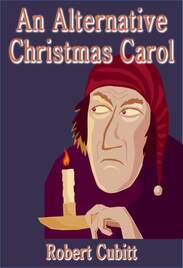 We do give away one title for free every Christmas as a good will gesture. It’s called “An Alternative Christmas Carol” and it gets a lot of downloads. Strangely, when we take it off free offer after Christmas, we often sell a couple of copies. Bizarre! So, that’s pricing for you. If you think you can sell at a high price – try it, but don’t be surprised if readers don’t buy the book. Better to be modest when you start out (< £5) and increase your prices later when you have established your reputation. If you have enjoyed this blog or found it informative and want to be sure not to miss the next edition, just sign up for our newsletter. We'll even send you a free ebook for doing so. Just click the button below.
0 Comments
Leave a Reply. |
AuthorThis blog is compiled and curated by the Selfishgenie publishing team. Archives
March 2025
|
 RSS Feed
RSS Feed